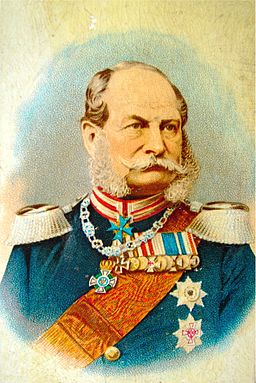
One hundred years ago, World War I started. No one really wanted it to start, but all the key players in Europe had bound themselves up in such a way that they could see no way to avoid war without losing face. The sad truth is that politicians, then and now, would rather see a disastrous war that kills millions than "lose face" by admitting they were doing something stupid.
Then and now: because it's happening again. When politicians compare Putin to Hitler, what does that do? Well, do you negotiate with Hitler? Heck no -- no one wants to be compared to Neville Chamberlain. Do you defeat him and allow a negotiated surrender? Apparently not: the demand for unconditional surrenders extended World War II and cost many lives, but it was thought to be necessary.
But how do you persuade a nuclear superpower to surrender unconditionally? You don't. Let's be clear on a couple of points here:
- Russia is a nuclear superpower. They may have fewer nukes than in the past, but it's easily enough to cause several hundred million deaths. If they wanted to, they could destroy the United States (at the obvious cost of being destroyed themselves). The people who survived would no longer be "the United States". Ditto for the European Union. A superpower is defined not in terms of what it can create, but what it can destroy. Superpowers can only be pushed around so much.
- We (the US, the West, whatever) did not "win" the Cold War, except in the all-important sense of surviving the Cold War. Of course, in that sense, the Russians won, too. It is true that the Soviet Union did not survive the end of the Cold War, but Ronald Reagan did not bring down the Soviet Union. The Russian people brought down the Soviet Union. If we keep getting this wrong, we will keep screwing up our policies in that part of the world.
- Russia leases the Crimea from Ukraine for 100 years. The US leases Guantanamo Bay from Cuba, even though relations between the two countries have been terrible for decades. Hong Kong was leased to the UK from China even during the Cold War. The main advantage of this solution is that it acknowledges that Crimea is in principle a part of Ukraine (to soothe their pride) while also acknowledging Russian control. Also, instead of a costly war, at least Ukraine would get something for the loss of control of Crimea. This is my preferred option.
- Russia buys the Crimea outright, the way the US bought (for example) Alaska and the Louisiana Purchase. Arriving at a fair price would be challenging, to say the least, but again Crimea gets something in return, as opposed to the huge losses that could be expected in a war.

